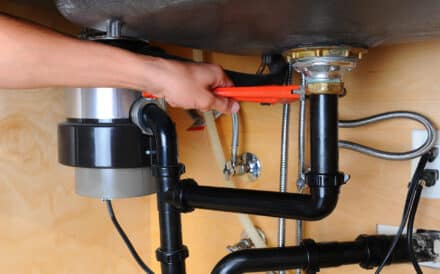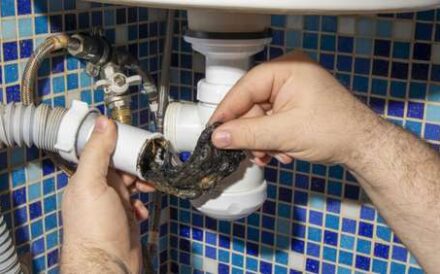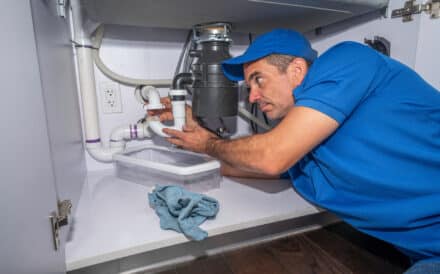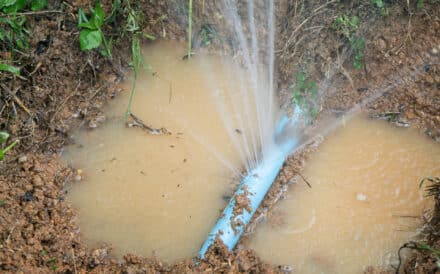Understanding the Pros and Cons of Tankless Water Heaters
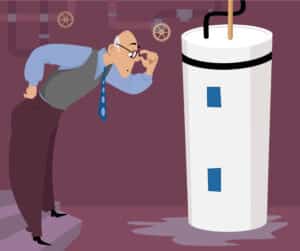
Tankless water heaters are all the rage these days. Boasting a lifespan that may be 2 or 3 times that of a traditional water heater and significantly fewer -and less expensive- repairs and maintenance concerns, tankless water heaters seem like the perfect solution for your water heater system.
Like all technology, however, tankless water heaters have their upsides…and their downsides. Read on to find out what you should consider in terms of replacing your traditional water heater with a tankless upgrade.
In a time crunch? Check out our video below about the The Differences Between a Tankless and Tank Water Heater:
What Is A Tankless Water Heater?
A new take on the classic traditional water heater, which is basically a big tank filled with hot water, a tankless water heater provides hot water on demand. Cold water travels through the tankless unit and is heated using gas or electricity, giving you a hot water supply that lasts.
Their efficiency is astounding: 24% or more energy-efficient than traditional (storage tank) water heaters, as long as you use around 41 gallons a day (even if you double that, they are still more efficient – in the range of 8% to 14%). This means that in theory you can take a hot shower forever, without ever running out of hot water. (You might be a little pruney by the end, though.)
What Are The Pros of a Tankless Water Heater?
A tankless water heater comes with many pros in comparison to a traditional storage tank system. These include:
Energy Efficiency
A tankless water heater is reportedly 24% to 34% more energy-efficient than storage tank water heaters. This is a huge improvement over the storage-tank water heater.
Saves You Money
You’re using less energy, so you also end up saving more money. If you live in an area of high energy costs -which seems like more and more places these days- a tankless water heater pays for itself in only a few years.
Hot Water Supply
Theoretically, as we mentioned above, you could have hot water indefinitely because of how the tankless system works. No more shivering at the ends of showers, no more racing to do the dishes or get the cooking done because you don’t know when or if the hot water will run out.
Space-Saving
No storage tank means that the apparatus itself is small. A tankless water system is a great way to free up space in your home currently occupied by that massive water storage tank.
Nearly Repair—and Maintenance-Free
Will you never have to call a repairman to help with a problem that you’re having with your tankless water heater? Well, no. The reason that storage tank water heater systems require so much maintenance is that they are subjected to a lot of corrosion, which makes parts fail and can even make the tank fail, too. The tankless system doesn’t have these particular liabilities, since water is constantly moving through the system and not being stored, but it will require the occasional repair or maintenance call.
Lifespan
A tankless water system is designed to last from 8 to 15 years—2 to 3 times the length of the average storage tank heater system. If you are planning on buying your home, you won’t have to replace it as often.
What Are The Cons of a Tankless Water Heater?
It’s the wave of the future, right? Endless hot showers? Sign me up! Tankless water heaters do have their drawbacks, however. Here they are:
Limited Hot Water for Multiple Outputs
A tankless heater can only heat so much at a time. If you’re taking a shower and someone is running the dishwasher in the kitchen and someone else is doing a load of laundry…one or all three of you may end up in trouble. Rather, the temperature may fluctuate, so that you, your clothing, or your dishes might end up in trouble.
However; you can overcome this issue by installing multiple units or simply by using less hot water.
The Power Outage Issue
Even gas models of tankless water heater units run partly on electricity, so if you have a power outage, especially one that lasts a while, you lose your hot water. If you live in an area prone to regular power outages, you might do well by sticking with the more traditional storage-tank water heater.
The Unit Cost
A tankless water heater costs considerably more upfront, both for the unit itself and its installation than a traditional storage-tank water heater. (That being said, it will pay itself off in energy savings in just a few years.) The average cost of the tankless water heater unit is a little higher (starting at $1,000) than for electric models ( starting at $500).
The Upfront Cost
The initial price tag for a tankless system will cause many people to second-guess this decision, even if it does pay for itself in a few short years.
Installation
Don’t forget about the installation: having a new tankless water heater installed costs can start at $800 to install for an electric model; a gas or propane model comes in higher, starting at $1,000 for installation.
Maintenance and Care
As mentioned previously, the cost to maintain and care for your system is typically a once-a-year visit from your trusty local plumber. However; minerals do build up over time in the system and the system must be flushed at least once a year—twice if you live in a hard-water area—to keep things flowing smoothly. Most warranties do not cover mineral buildup.
You’ll also need to clean and check the water and air filters. Your instruction manual can tell you how often these will need cleaning as well as provide instructions on how to replace these filters. At the same time, check for dust, dirt, and debris, and if you find any damage or issues you don’t know how to tackle, contact a plumber immediately.
Make the Switch to a Tankless System With Silver State
While tankless water heating systems require an expensive investment upfront, many are willing to take the risk to trade out those cold end-of-showers and freezing wet clothes out of the washing machine. A tankless system is a great purchase for the long term, and you’ll probably end up wondering why you never made the switch sooner.
Let the professionals at Silver State guide you in choosing your home’s next water heating system. We can’t wait to work with you!

